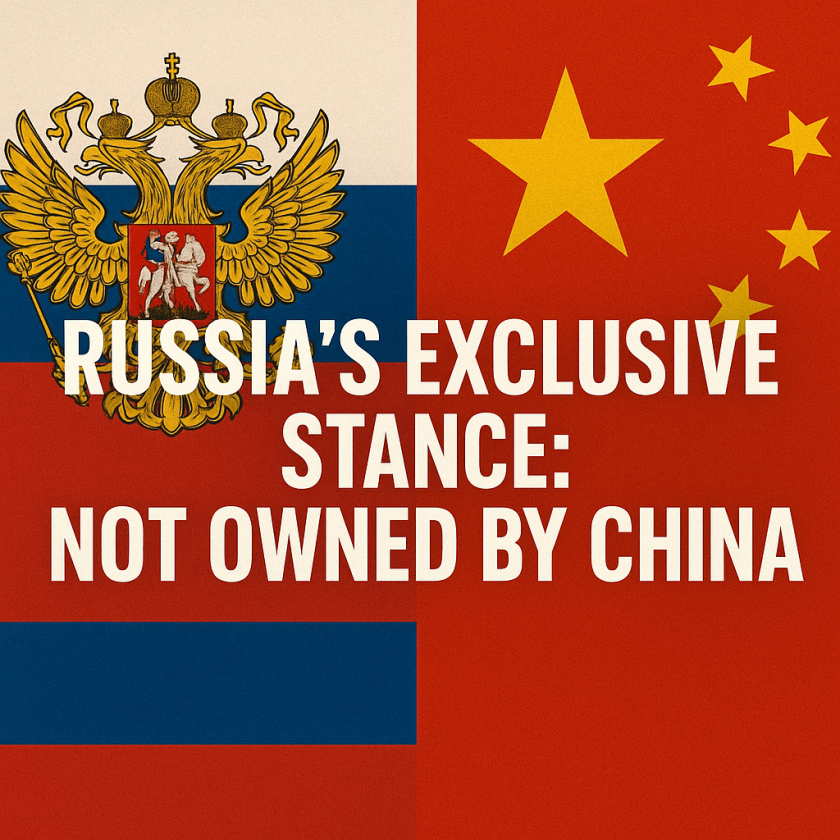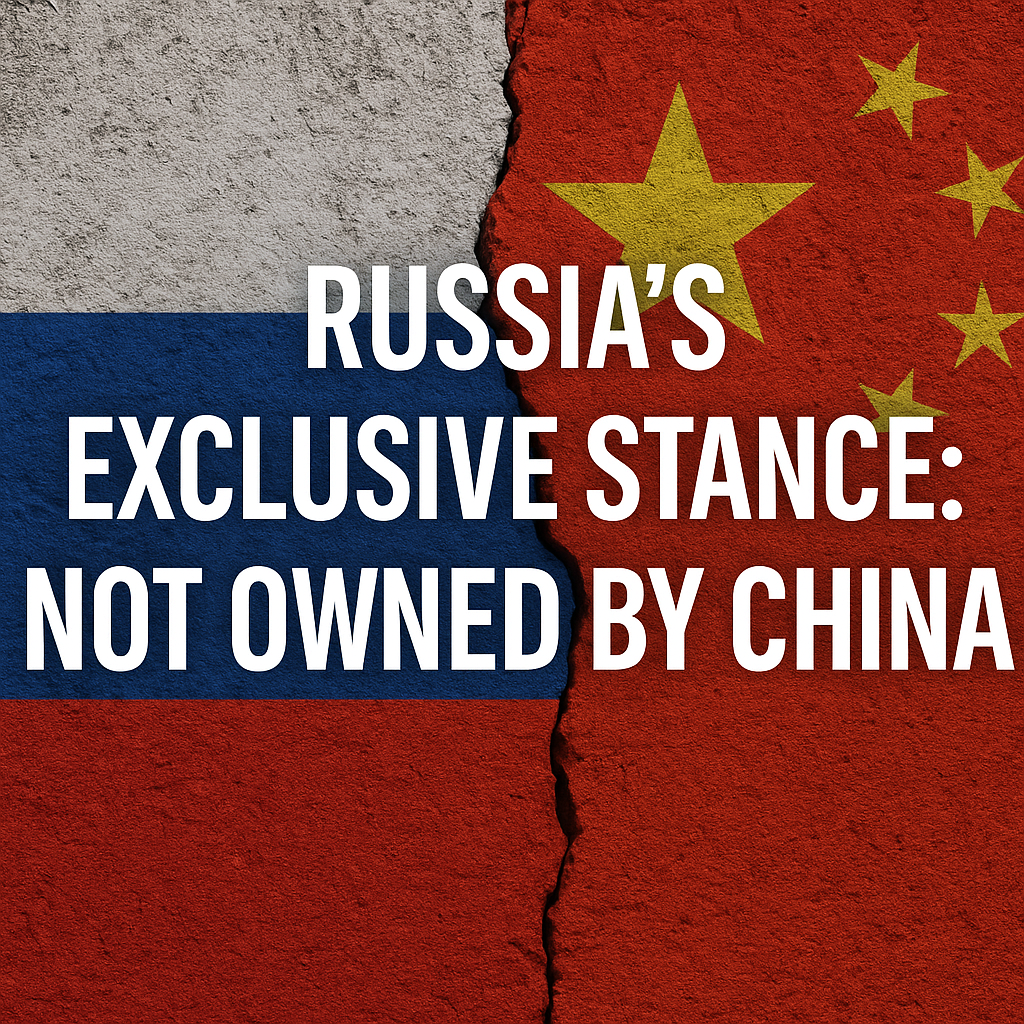Russia’s Exclusive Stance: Not Owned by China
Russia’s Exclusive Stance: Not Owned by China

Russia’s exclusive stance that it is not owned by China is a critical narrative shaping international relations today. As tensions escalate globally and alliances shift, understanding the complexities of the relationship between these two nations becomes increasingly essential.
Historical Context of Russia-China Relations
To grasp Russia’s current sentiment regarding its relationship with China, one must first consider the historical backdrop. While the two nations share a long border and historical grievances dating back to the Cold War, their relationship has evolved dramatically since the dissolution of the Soviet Union. In recent years, both countries have sought to enhance their strategic partnership, particularly in defense and economic sectors.
In his recent statements, Russian Foreign Minister Sergey Lavrov emphasized, “We are not a satellite of China, and we maintain our independence in foreign policy.” This assertion reflects a significant point of view expressed by Russian officials who are cautious about appearing overly aligned with Beijing amid Western scrutiny.
Economic Interdependence vs. Sovereign Aspirations
Despite the burgeoning economic ties, many analysts argue that this interdependence does not equate to subservience. China’s growing influence, especially in the economic arena, has fueled concerns among some Russian officials about losing sovereignty. Russia has been maneuvering to assert its independence through various means, including investment in other geopolitical alliances and diversifying its trade relationships.
Diverging Perspectives on Sovereignty
1. Pro-Sovereignty Argument: Supporters of the Russian government’s view argue that Moscow retains its agency in international affairs. They point to Russia’s efforts in the Middle East and Africa, where it has sought to establish a presence independent of Chinese involvement. The burgeoning military relationship with countries like India and strategic partnerships with African nations further bolster this narrative.
2. China’s Influence Concerns: Critics highlight that while Russia asserts its independence, the reality of economic dependence on China is undeniable. With trade between the two nations expected to surpass $200 billion by 2024, economic realities may sway Russian policies more than overt political aspirations. Moreover, the growing reliance on China for energy sales—especially given the recent sanctions from the West—raises concerns over whether Moscow risks becoming too reliant on Beijing.
The Geopolitical Landscape: Navigating Allies and Adversaries
The broader geopolitical landscape complicates Russia’s declarations of independence. The United States and its allies have ramped up their military presence in the Indo-Pacific region, making China increasingly wary. As a result, some analysts suggest that Russia can leverage this moment to strengthen its own position by presenting itself as a crucial counterbalance to Western hegemony in global affairs.
A Shift in Focus: Just as Russia finds opportunities in presenting itself as an independent entity, there may be an element of pragmatism at play. Engaging with China on economic grounds while maintaining a distance diplomatically enables Russia to reap benefits without succumbing to full alignment.
Conclusion: A Complex, Evolving Relationship
In the context of international relations, the claim that Russia is not owned by China is emblematic of a broader, more intricate narrative. It reflects Russia’s desire to convey its independence despite economic interdependencies shaped by the current geopolitical climate.
While the statements of Russian officials underscore a commitment to maintaining sovereignty, the realities of global economics and changing power dynamics illustrate a more complicated relationship. As both nations navigate these waters, the world watches closely to see how their interactions will unfold—a testament to the complexity of modern diplomacy.
Engaging with these multidimensional relationships ultimately reveals that Russia’s stance, while clear on the surface, embodies a web of aspirations, challenges, and calculated political maneuvers.






































